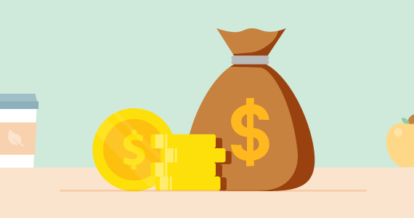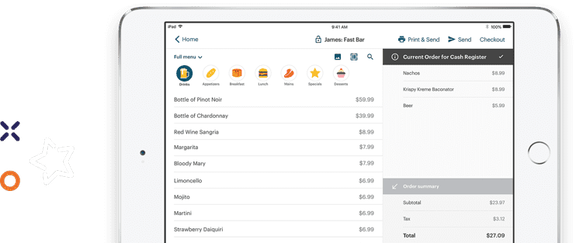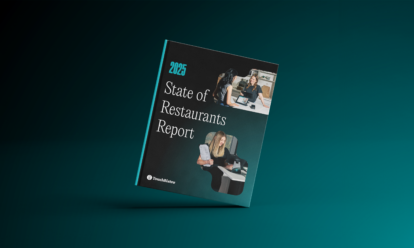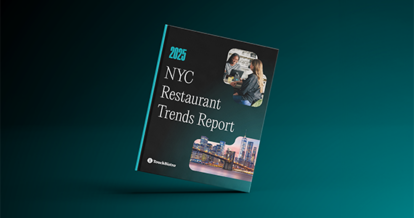With funding options changing daily, we’ll do our best to keep this article as up-to-date as possible. For a full list of federal, state, and municipal funding available, please visit our Support Finder on the Restaurant Recovery Navigator.
While every U.S. citizen is feeling the impact of COVID-19, nobody is hurting more than small business owners. With shelter-in-place orders still in place across the country, the coronavirus pandemic has forced restaurants to change their operations – or even close their doors for the time being.
Because they operate on notoriously razor-thin margins, restaurants top the list of small businesses hard-hit by COVID-19. And with closures, little-to-no foot traffic, and spoiled inventory, it’s harder than ever for these businesses to keep from going under.
However, governments, lenders, nonprofits, and even the IRS (yes, the IRS) have rallied to give restaurants a fighting chance. Here’s a sample of the business financing available to restaurants impacted by the coronavirus:
- SBA loans
- Payroll cash flow assistance
- Government grants
- Tax extensions
- Debt forgiveness
- Low-interest loans
On March 25th, the Senate passed a $2-trillion stimulus package to support the economy during the coronavirus emergency. The Coronavirus Aid, Relief, and Economic Security Act (CARES Act) earmarked more than $300 billion for small businesses battling to survive and keep workers employed amid closures and social-distancing laws.
The second round of funding added another $310 billion a few weeks later, with $60 billion set aside specifically for smaller banks and lenders, like credit unions and community banks.
But these bills represent just one area of relief programs available for small businesses. If you’re a restaurant owner in need of immediate emergency restaurant funding, you came to the right place.
Below we’re going to cover 20+ COVID-19 financial resources for U.S. restaurants from five different areas of assistance:
- Federal government assistance
- State and local government assistance
- Small business COVID-19 loans
- COVID-19 relief grants
- Nonprofits offering COVID-19 assistance
Again, we’ll do our best to keep these sources as up-to-date as possible, but for a full list of federal, state, and municipal funding available, please visit our Support Finder on the Restaurant Recovery Navigator.
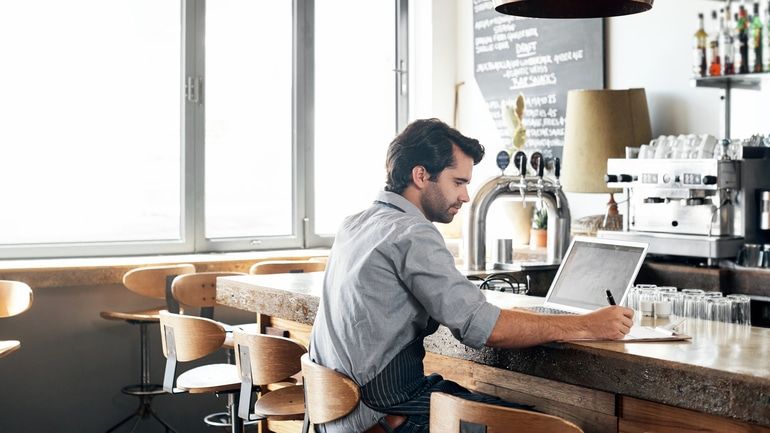
COVID-19 Restaurant Funding and Financial Resources for Restaurants
Wherever you look, organizations are providing new COVID-19 financial assistance – the federal government, cities, states, lenders, tech companies, nonprofits, and more. Every day, new relief programs pop up, and we’re going to cover the best-of-the-best opportunities to-date.
1. Federal Government Assistance for Restaurants
The federal government is providing everything from SBA loans to grants to tax extensions to keep small businesses alive. While the government is well-known for its lengthy processes and mountains of paperwork, they’re working hard to get businesses the restaurant funding they need.
SBA Economic Injury Disaster Loans (EIDL)
The SBA is offering low-interest loans up to $2 million for small businesses (those with 500 or fewer employees) impacted by COVID-19. Small, for-profit businesses can get a SBA loan of up to $2 million with an interest rate of 3.75%. Loan terms can be as long as 30 years, with repayment plans based on your ability to pay back the money.
An SBA loan isn’t the quickest loan on the market, but the government is trying to make the process easier and review applications within two weeks. They’ve even implemented some adjustments under the CARES act to make capital more accessible. With optimal loan amounts, rates, and terms, this is a loan worth waiting for if you have any time to spare. You can apply through the SBA site.
On top of SBA loans, the federal government will use the money to do the following:
- Expand unemployment benefits
- Give payroll tax credits
- Offer debt relief
- Provide 100% federally guaranteed loans to small businesses who maintain their payroll during this emergency
We’ll cover each of these in more detail below.
SBA Express Bridge Loans (EBL)
The Express Bridge Loan Pilot Program empowers small businesses to use an existing relationship with an SBA Express Lender to obtain up to $25,000 with significantly less paperwork.
And if you applied for an EIDL but need cash now, go ahead and secure an EBL. Later, when you receive EIDL funding, you can use proceeds from the loan to help pay off your EBL.
The Paycheck Protection Program (PPP)
If you’re fighting to keep your restaurant employees in jobs, the Paycheck Protection Program (PPP) can help. Administered through the SBA, PPP loans provide eight weeks of cash flow assistance through 100% federally guaranteed (no collateral or personal guarantee required) loans to small business owners who maintain their workforce during this pandemic. You can borrow up to 2.5 times your prior average monthly payroll costs (no more than $10 million) at a fixed interest rate of 1% with zero fees to use towards:
- Employee salaries
- Interest on mortgage payments
- Rent
- Utilities
- Other debt obligations incurred during the “covered period” (March 1 to June 30)
Loan payments can be deferred for 6 months. And if you maintain your workforce over the 8 week period after the loan is made then the portion of Loan payments can be deferred for at least 6 months (although interest accrues during this period). The two criteria to be eligible for a PPP loan are:
- 500 or fewer employees
- In business before February 15, 2020
Loan amounts vary, depending on the size of your payroll pre-COVID and current loan terms are two years (although the National Restaurant Association is lobbying to have that term length extended back to the 10-year term that was originally proposed).
PPP loan forgiveness is also available if the proceeds are used for payroll costs and other designated business operating expenses in the eight weeks following the start of the loan. Businesses need to keep records of these expenses and apply for loan forgiveness later on.
Emergency EIDL Grants
As part of the $2-trillion stimulus package, the government allocated an additional $10 billion to the Emergency Injury Disaster Loan program to provide some immediate relief in the form of grants while businesses wait for their loans to be processed.
Along with your EIDL loan, you can apply for an EIDL emergency grant of up to $10,000 (that should arrive in less than 3 days) to help save payroll, cover sick leave, and assist with other debts.
Small Business Debt Relief
Thanks to the new coronavirus aid bill, the SBA will get an extra $17 billion to help businesses impacted by the coronavirus. The SBA will use this cash to pay all principal, interest, and fees small businesses currently have on existing SBA loans for six months.
In addition, the SBA has deferred all existing disaster loan payments to December 31st.
Employee Retention Tax Credit
Eligible small businesses can receive a refundable tax credit of wages. In 2020, the Employee Retention Tax Credit provided eligible employers with a refundable tax credit of 50% of in wages (up to $10,000). In 2021, this amount was increased to 70% (up to $10,000).
To get immediate access to the payroll credits granted via the Paycheck Protection Program and SBA emergency loans, employers can retain and use what they would have spent on payroll taxes. And if you’re paying out more in COVID-19-required leave than your payroll taxes, then you can file a refund with the IRS.
Tax Extension
The federal tax return filing deadline has been extended to July 15th, 2020. Many state tax agencies have adjusted their deadlines, too. By postponing your restaurant tax payments, you can free up some of your cash flow and keep your money working for your business.
The first quarterly estimated tax payment for 2020 is also delayed until July 15th, 2020.
2. State and Local Government Assistance
States and cities around the country are offering geographic-specific coronavirus funding to small businesses.
For example, San Francisco is offering COVID-19 emergency funding, Colorado is providing grants up to $7,500, and Chicago is offering low-interest loans. More and more relief programs are being added every day, so check your governor’s website for up-to-date additions.
You also can find hospitality-specific government assistance. For example, the Illinois Department of Commerce & Economic Opportunity launched the Hospitality Emergency Grant Program, and Delaware announced the Hospitality Emergency Loan Program (HELP).
Eviction Bans
Cities and states around the country are placing eviction bans to protect individuals and small businesses unable to pay their rent or mortgage due to the coronavirus. Check this up-to-date eviction ban list to see what your city or state is doing to protect your business. Some locations are providing loans and grants, while others are issuing executive orders to eliminate evictions temporarily.
Tax Relief
Emergency regulations are being implemented by numerous states to provide tax relief. From deadline extensions to waiver of penalties, you can find an up-to-date list for your state here.
3. Small Business COVID-19 Loans
MainVest Zero-Interest Loan
MainVest announced its Main Street Initiative to grant $2,000 zero-interest loans to restaurants, and brick and mortars affected by the coronavirus shutdown.
Kiva Loans
Kiva has always offered zero-interest loans to small businesses, but now they’re doing even more to help entrepreneurs. To assist local companies during the coronavirus pandemic, Kiva has updated their lending program in the U.S.:
- Expanded eligibility will help more U.S. small businesses qualify.
- Maximum loan amounts have increased from $10,000 to $15,000.
- New borrowers can use a six-month grace period to increase financial flexibility.
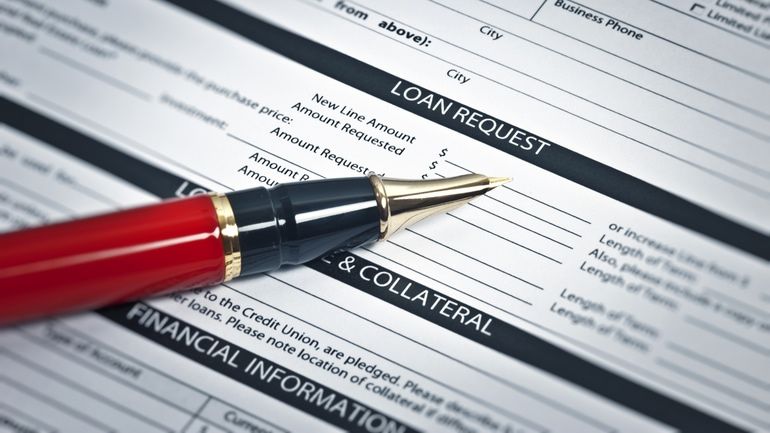
RWCF COVID-19 Crisis Relief Fund
The Restaurant Workers’ Community Foundation (RWCF) announced a COVID-19 Crisis Relief Fund to raise money to help restaurants in need. The fund will help restaurants in three ways:
- Immediately send money to organizations assisting in the restaurant community.
- Provide zero-interest loans to restaurants so they can maintain payroll during closures or re-open when restrictions lift.
- Establish relief for employees experiencing economic difficulties or health crises due to COVID-19.
RWCF has partnered with the Southern Smoke Application Form to distribute the funds. You can apply for assistance here.
Online Loans
Affordable small business loans are also still available online. With advanced underwriting programs that combine human expertise with cutting-edge tech, alternative online lenders expedite the process and can return decisions in as little as 24 hours. So if you need cash fast, consider this form of financing.
4. COVID-19 Relief Grants
Across the world, tech companies and foundations alike are offering their support to small businesses through relief grants. Unlike a loan, businesses don’t repay grants, making them one of the most sought-after forms of financing.
Amazon Neighborhood Small Business Relief Fund
Amazon is offering small business grants in specific Seattle neighborhoods that are hard-hit by the coronavirus, especially businesses that rely on heavy foot traffic. Visit this page to apply.
Google Ad Credits for Small and Medium-sized Businesses
Google is making $340 million available in ad credits to SMBs worldwide, which can be used towards future ad spend until the end of 2020 across Google Ads platforms. Visit this page for more details
Facebook Small Business Grants Program
Facebook announced $100 million in grants to up to 30,000 businesses impacted by the coronavirus. The offer is for a $4,000 grant for recipients in the U.S. ($2,500 cash, $1,500 in optional ads credits).
Here are the criteria for eligibility:
- Be a for-profit company
- Have between 2 and 50 employees
- Have been in business for over a year
- Have experienced challenges from COVID-19
- Be in or near a location where Facebook operates
You can check the eligibility of your area and apply here.
The James Beard Foundation Food and Beverage Industry Relief Fund
The James Beard Foundation provided funds for micro-grants to independent food and beverage businesses in need. Their funding is now over, but they appear to be still accepting donations, so it is possible they will have additional relief available at some point.
To learn more or donate, click here.
The GoFundMe.org Small Business Relief Fund
To help small businesses in need, GoFundMe started the Small Business Relief Fund that had raised almost $2.4 million. In partnership with Yelp and Intuit QuickBooks, GoFundMe is providing one-time matching grants to small businesses that raise at least $500 in donations. These donations and small business grants are to be used to care for employees and pay for ongoing business expenses.
Yelp Relief Fund for Restaurants and Bars
Yelp has a $25 million relief fund aimed at local restaurants and nightlife businesses, offering waived advertising fees and free advertising, products, and services through May 25, 2020. Businesses need to have fewer than five locations. You can see more details on the Yelp blog.
5. Nonprofits Offering COVID-19 Assistance
When it comes to providing COVID-19 financial assistance, nonprofits are also participating. Below are a couple of restaurant-focused nonprofit relief programs.
Rethink Restaurant Response Program
Rethink set up a Restaurant Response Program to help with food need and access in New York City during this time of crisis. The program provides up to $40,000 for restaurants to help them stay open and provide these meals.
Applications are currently on hold while they set up operations in a number of new locations. They plan to reopen applications within the next few weeks, so check back here regularly.
TX Restaurant Relief Fund
Through its nonprofit Education Foundation (TRAEF), the Texas Restaurant Association has established the TX Restaurant Relief Fund to raise a minimum of $10 million and offer grants of up to $5,000 to independent restaurateurs.
Keep Calm and Small Business On
Keep your eyes out for new restaurant funding. Governments and organizations are providing additional financial resources every day. The country is uniting to help you make it through this.
Together, we can help make sure restaurants make it through this novel pandemic. Keep calm, continue to communicate with staff and customers, and get the financing your restaurant needs to stay afloat.
